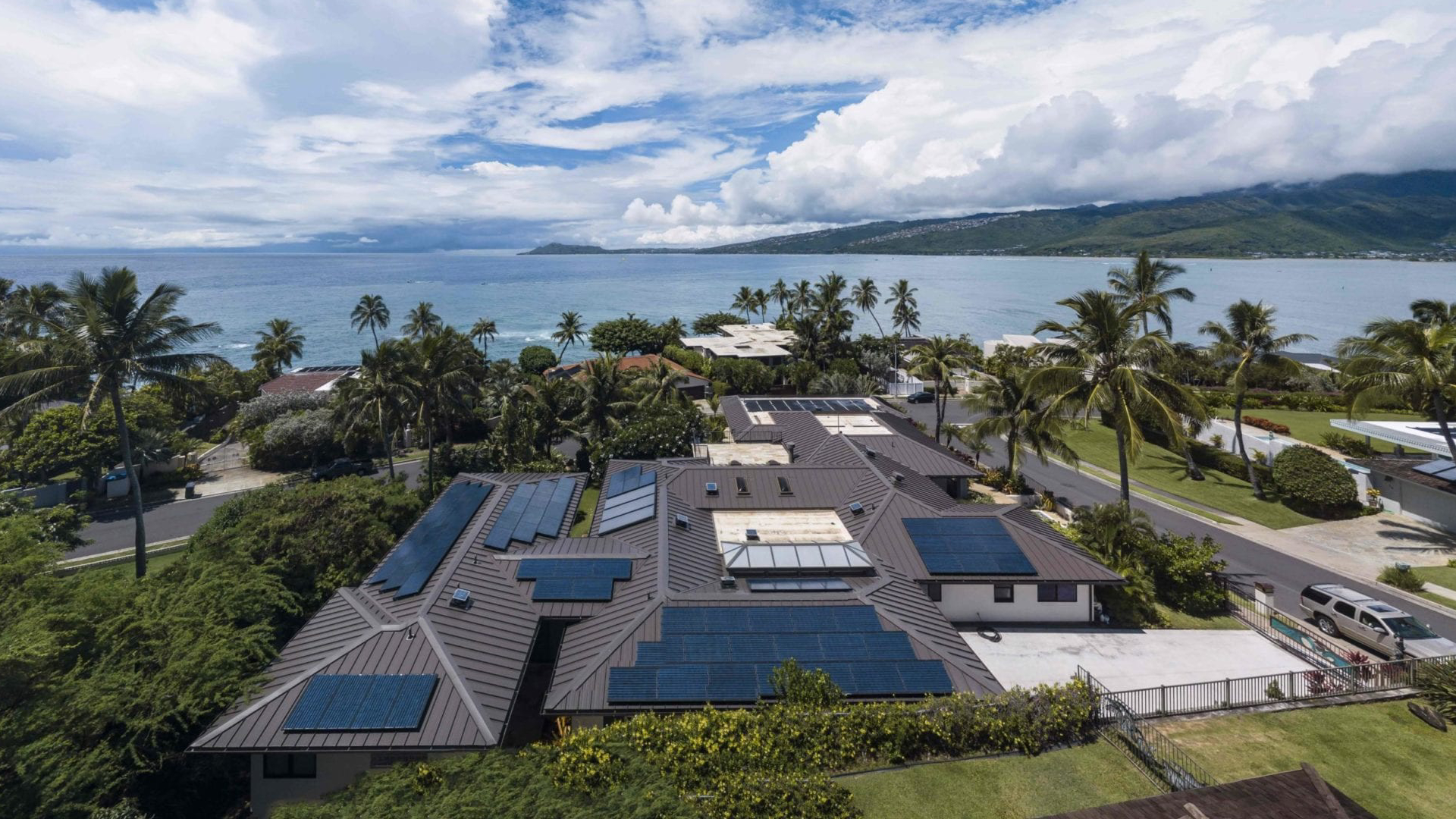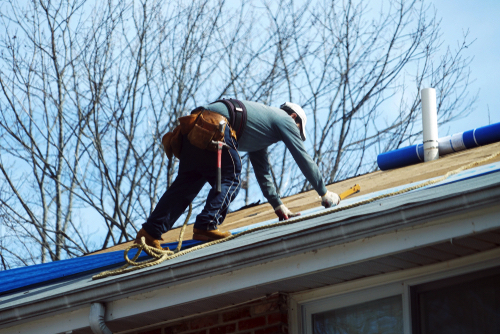The Benefits of Energy-Efficient Roof Covering for Lower Utility Bills
Energy-efficient roof covering offers an engaging situation for property owners seeking to lower their energy expenses while enhancing general convenience. By incorporating sophisticated products that mirror heat and improve insulation, these roof covering options can considerably decrease home heating and cooling needs.
Understanding Energy-Efficient Roof Covering
Understanding energy-efficient roof covering starts with identifying its pivotal duty in improving a structure's thermal performance. Roof covering systems dramatically influence a structure's energy intake by regulating warmth transfer between the exterior and interior settings. An efficient energy-efficient roof minimizes warmth absorption during the warmer months and minimizes warm loss throughout chillier periods, promoting a comfortable living or functioning space while lowering reliance on heating and cooling systems.
The layout and construction of energy-efficient roofs integrate various functions that add to their efficiency. These roof coverings normally include reflective products that lower solar warmth gain, as well as insulation layers that strengthen total thermal performance. Proper air flow is also essential, as it aids to dissipate excess warm and dampness, even more boosting energy effectiveness.
Additionally, energy-efficient roof covering can expand the life expectancy of the structure's overall framework by minimizing the wear and tear related to temperature level variations. This durability equates right into long-term expense savings, as building proprietors might experience less fixings and replacements with time. Ultimately, understanding the basic concepts of energy-efficient roof covering enables stakeholders to make enlightened choices pertaining to structure design and maintenance, promoting sustainability and financial benefits at the same time.
Kinds of Energy-Efficient Roof Materials
When selecting roof covering materials, homeowner have a selection of energy-efficient options that can substantially boost a structure's sustainability. Amongst one of the most preferred products are reflective steel roof coverings, which successfully mirror sunlight, decreasing warmth absorption. This characteristic not only aids maintain reduced interior temperature levels however additionally lengthens the life-span of the roof product.
An additional excellent option is cool roof covering membranes, typically made from changed bitumen or single-ply materials. These membranes are made to reflect solar energy and can reduce cooling expenses considerably (roofing honolulu). Asphalt tiles with reflective granules can additionally enhance power effectiveness while providing a traditional aesthetic.

Furthermore, tile roofs, especially those made from clay or concrete, can add to power effectiveness because of their thermal mass, which assists manage interior temperatures. Green roofs, including greenery, offer insulation advantages and decrease metropolitan warmth islands, making them a significantly popular choice for eco-conscious residential property owners.
Influence On Utility Bills

Furthermore, energy-efficient roofs can likewise boost thermal insulation, helping to keep warmth throughout cooler months. This dual performance suggests that heating systems can run a lot more efficiently, further adding to reduced energy expenditures. Homeowners might observe a decrease in both air conditioning and home heating expenses, developing a more balanced power consumption profile throughout the year.
Additionally, numerous energy-efficient roofing alternatives feature longer lifespans and much less upkeep demands, which can translate to additional expense financial savings over time. By spending in these materials, homeowner can profit from immediate reductions in utility expenses while likewise enjoying long-term monetary advantages. In summary, the great post to read influence of energy-efficient roofing on energy bills is substantial, making it a sensible financial investment for those aiming to enhance their power expenses.
Environmental Benefits
One significant benefit of energy-efficient roof is its favorable impact on the setting. These roof systems are made to show more sunshine and soak up less warm, which substantially decreases the metropolitan heat island effect. By decreasing surrounding temperature levels, energy-efficient roofings add to boosted air high quality and lowered energy demand for cooling down in neighboring buildings.
Additionally, the reduction in power intake lowers the dependence on fossil gas for electricity generation, causing lower greenhouse gas discharges (roofing honolulu). This not only reduces climate modification yet also lessens the unsafe pollutants launched right into the ambience, profiting both human health and wellness and the ecosystem

Standard roof products might require even more frequent substitute, resulting in boosted garbage dump payments. Overall, the environmental advantages of energy-efficient roof are significant, making it a critical consideration for eco-conscious house owners and builders alike.
Enhancing Home Worth
Spending in energy-efficient roof can substantially improve home value, look at here now attracting an expanding market of eco mindful buyers. As awareness of climate change and sustainability rises, several potential house owners prioritize power efficiency when reviewing residential properties. A well-designed energy-efficient roofing not only lowers energy prices but also shows a commitment to ecological duty, making a home more eye-catching in a competitive realty market.
Furthermore, energy-efficient roof covering products, such as trendy roof coverings and solar tiles, often featured prolonged service warranties and lower upkeep expenses, better improving a residential property's allure. This investment can lead to a greater assessment value and can attract purchasers eager to pay a premium for homes with sustainable attributes.
Furthermore, energy-efficient roofings can boost overall residential or commercial property visual appeals, as numerous modern-day products use a range of designs and shades. This versatility allows home owners to keep architectural integrity while achieving energy savings. Eventually, by choosing energy-efficient roof covering, house owners not only contribute to an extra sustainable future yet likewise position their property for greater resale possibility, making it a wise investment in both capability and marketability.
Verdict
In conclusion, energy-efficient roof covering offers significant advantages, consisting of lowered utility expenses, enhanced thermal efficiency, and ecological advantages. Emphasizing the visit the site relevance of adopting energy-efficient roof covering can lead to substantial economic cost savings and a more lasting living environment.